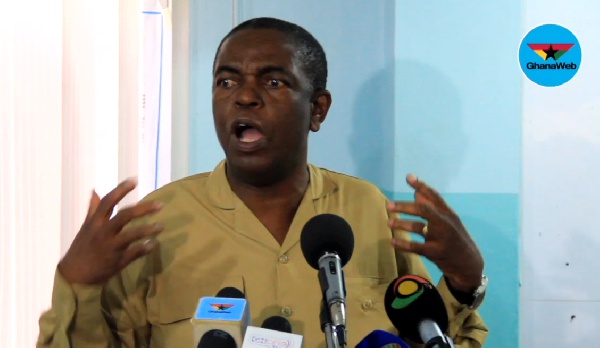
AU agency intensifies support for intra-African trade

The Africa Union-Inter-African Bureau for Animal Resources (AU-IBAR) is supporting the Africa Continent Free Trade Area (AfCFTA) to accelerate intra-African trade and boost Africa’s trading position in the global animal commodity market.
It is on this basis that AU-IBAR is convening a Continental forum seeking to promote dialogue amongst AU Member States for the operationalization of AfCFTA.
The forum will be held in Accra, Ghana from 11-13 December 2019, and will regard actions to be implemented at the operational, technical and administrative levels in relation to trade in animal commodities.
The forum, under the theme: “Accelerating intra-African trade and boosting Africa’s trading position in the global animal commodity market”, will identify key challenges and opportunities, potential intervention areas for support and mechanisms for the efficient functioning of the African common market.
As an entry point to promoting livestock trade within the framework of the AfCFTA, the Continental forum is being implemented under the framework of the Livestock Development Strategy for Africa (LiDeSA).
The success of the livestock sector in terms of the gross domestic product (GDP) is largely due to commercialization and intensification that has increased turnover and off-take from the export of a range of animal products.
The African livestock sector contributes between 30 and 80percent of the agricultural GDP and has the potential to deliver both agricultural growth and the socio-economic transformation as envisioned in the June 2014 African Union (AU) Malabo Declaration on Accelerated Africa Agriculture Growth and Transformation for shared prosperity and improved livelihoods.
The decision to call for the drafting of the LiDeSA was based on the recommendation of the Ninth Ministerial Conference on Animal Resources held in Abidjan, Cote d’Ivoire from 18th to 19th April 2013 on the need to enhance equitable access to, and participation in the livestock sector, improve global competitiveness and profitability, and ensure sustainable livestock management.
Central to the LiDeSA is the vision of a united and prosperous Africa, as referred to by the seven aspirations of Agenda 2063.
To speed up the process of accelerating intra-African trade given that the start of trading is officially earmarked for 1 July 2020, the forum will update and share information amongst stakeholders engaged in animal commodity trade and related activities on the AfCFTA.
There is global recognition that multiple and overlapping trade regimes are major barriers to trade in any common market system and that resolving these challenges through improved harmonization for policy coherence and enhanced coordination will be critical in facilitating trade within the African single market.
To address multiplicity and overlaps in trade regimes, the AfCFTA will support the establishment of clear, transparent, predictable and mutually-advantageous rules to govern Trade in Goods and Services, Competition Policy, Investment and Intellectual Property among State Parties.
There is a need for strong coordination amongst state actors and between various stakeholders on the implementation of the AfCFTA.
Thus, to operationalize the AfCFTA, there needs to be a common understanding amongst various government institutions, private sector, civil society organizations, partners and other stakeholders which have a part to play in promoting the AfCFTA on how the AfCFTA will be practically implemented amongst state actors.
Participants of the forum include; AU Member States (Chief Veterinary Officer, Directors of Animal Production, Directors of Trade, Animal Health and Food Safety Experts), Regional Economic Communities Farmer Associations, African Youth in Livestock Fisheries and Aquaculture Incubation Network (AYL-FAIN), African Women in Animal Resources and Farming Agribusiness Network ( AWARFA - N ), Experts’ Meeting for the Association of African Veterinary Statutory Bodies (2AVSB), African Association of Veterinary Education Establishments (2A2E-V) , AU Institutions: AU-IBAR, AUC-Department for Trade and Industry (DTI), ARSO, Partners: AfDB, UNECA, FAO, OIE, ILRI, UNIDO, World Bank; Livestock Producers Associations National and Regional Chamber of Commerce and the Media.
AfCFTA aims to strengthen Africa’s economic integration by eliminating tariffs on intra-African trade in goods and creating a continental market with the free movement of persons, capital, goods and services, which are crucial for deepening economic integration and promoting agricultural development, food security, industrialization and structural economic transformation.
At the 18th Ordinary Session of the Assembly of Heads of State and Government, held from 29 to 30 January 2012 in Addis Ababa Ethiopia, a decision (Assembly/AU/Dec. 394(XVIII) was taken on the Framework, Road Map and Architecture for Fast Tracking the establishment of AfCFTA and the Action Plan for Boosting Intra-African Trade.
Taking these commitments forward, the AU Extra-Ordinary Summit held in Kigali, March 2018 endorsed the establishment of the AfCFTA establishment whilst the operational phase of the Agreement was endorsed in Niamey, June 2019.
These decisions reinforce the aim to integrate Africa’s markets in line with the objectives and principles enunciated in the Abuja Treaty.
It is expected that the AfCFTA will result in an expanded and secure market for the goods and services of State Parties through adequate infrastructure; provide significant welfare gains, output and employment expansion, and intra-African trade growth in the long-run.






